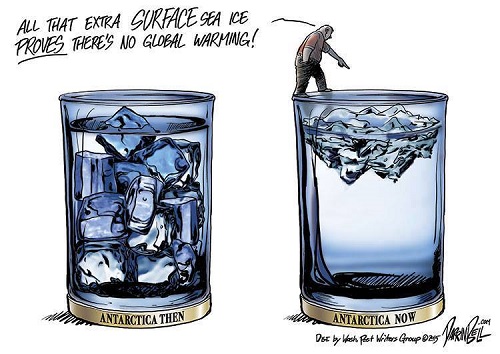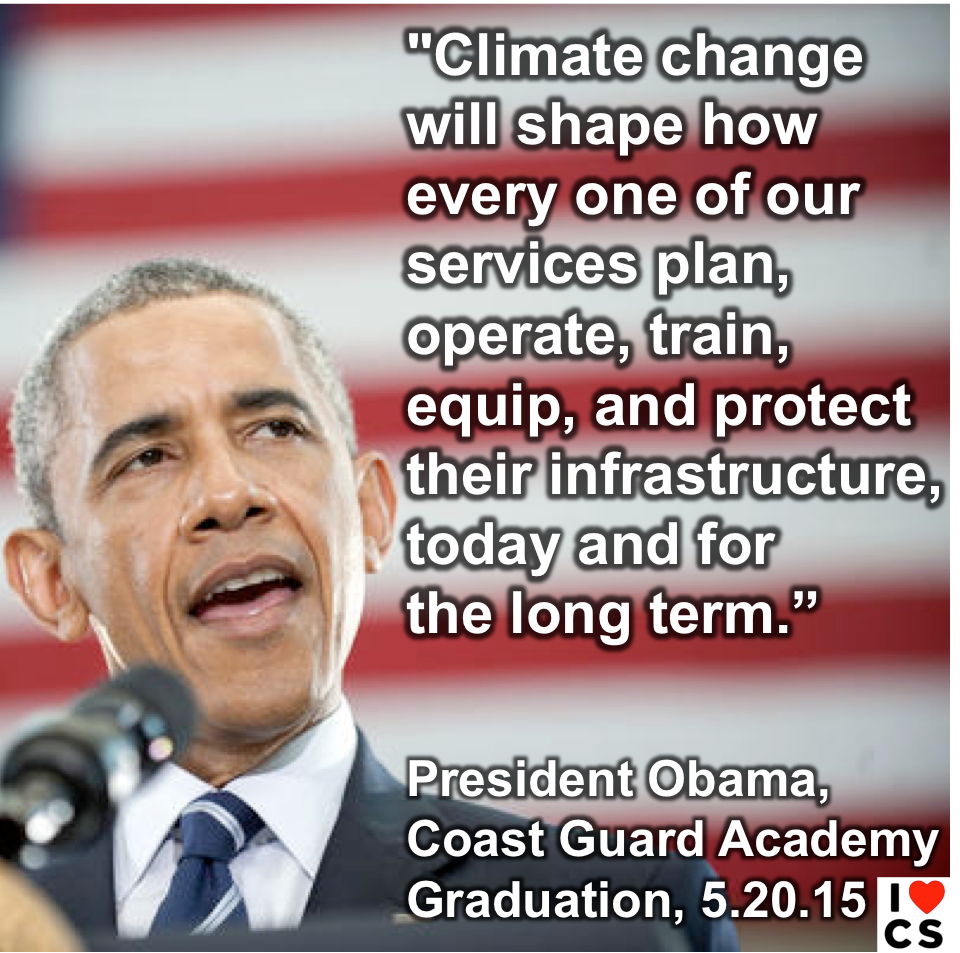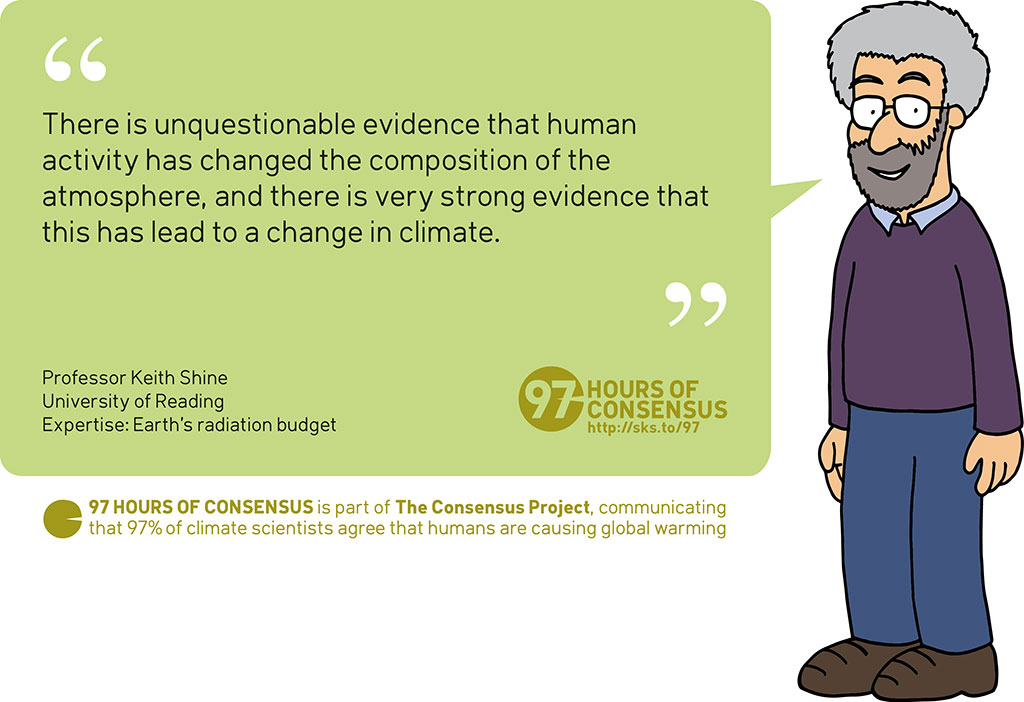2015 SkS Weekly Digest #21
Posted on 24 May 2015 by John Hartz
SkS Highlights
Why the 97 per cent consensus on climate change still gets challenged by Andy Skuce garnered the highest number of comments of the artilces posted on SkS during the past week. Dana's Congress manufactures doubt and denial in climate change hearing attracted the second highest number of comments.
El Niño Watch
El Niño could bring drought and famine in west Africa, scientists warn by Karl Mathiesen, The Guardian, May 21, 2015
May Climate Briefing: El Niño Heating Up by Elisabeth Gawthrop, International Research Institute for Climate and Society, Columbia University, May 22, 2015
El Niño 2015 considered rare, aims to rewrite heat records by Scott Sutherland, The Weather Network, May 23, 2015
Toon of the Week

Hat tip to I Heart Climate Scientists
Quote of the Week
Dr Kevin Trenberth, who was a lead author on the 2001 and 2007 IPCC reports which won a Nobel Prize, said: “Climate change is a serious problem in the longer term, and the best way to address it is to limit fossil fuel use: keep the fossil fuels in the ground. It is important for foundations to take a responsible view of this problem.”
Leading health charities should divest from fossil fuels, say climate scientists by Karl Mathiesen, Harry Davies and James Ball, The Guardian, May 23, 2015
SkS in the News
The following questions was posted on Yahoo Answers:
Some of the responses are rather humorous.
NASA has added:
J. Cook, et al, "Quantifying the consensus on anthropogenic global warming in the scientific literature,"Environmental Research Letters Vol. 8 No. 2, (June 2013); DOI:10.1088/1748-9326/8/2/024024
to its list of documents supporting its Consensus webpage.
SkS Spotlights: International Research Institute for Climate and Society
The mission of the International Research Institute for Climate and Society (IRI) is to enhance society’s capability to understand, anticipate and manage the impacts of climate in order to improve human welfare and the environment, especially in developing countries. The IRI conducts this mission through strategic and applied research, education, capacity building, and by providing forecasts and information products with an emphasis on practical and verifiable utility and partnership.
The IRI was established as a cooperative agreement between NOAA's Climate Program Office and Columbia University. It is part of The Earth Institute, Columbia University, and is located at the Lamont Campus.
Coming Soon on SkS
- Spoiled ballots, spoiled views: an election snapshot from Powys, Wales, UK(John Mason)
- Memo to Jeb Bush: denying human-caused global warming is ignorant (Dana)
- 2015 SkS Weekly News Roundup #22A (John Hartz)
- Sea level is rising fast – and it seems to be speeding up (Christopher Watson, John Church & Matt King)
- Scientists discuss how strongly a warming Arctic is implicated in extreme weather (Robert McSweeney)
- The Carbon Brief interview: Prof Dame Julia Slingo OBE (Leo Hickman)
- 2015 SkS Weekly News Roundup #22A (John Hartz)
- 2015 SkS Weekly Digest #22 (John Hartz)
Poster of the Week

Hat tip to I Heart Climate Scientists
SkS Week in Review
- 2015 SkS Weekly News Roundup #21B by John Hartz
- Seeds of Time - preserving food resources in a hot future climate by John Abraham
- Congress manufactures doubt and denial in climate change hearing by Dana
- Hotspot Found Again: Warming of the Tropical Troposphere Confirms Climate Model Prediction by Rob Painting
- 2015 SkS Weekly News Roundup #21A by John Hartz
- My Research with Steve by Kate
- Why the 97 per cent consensus on climate change still gets challenged by Andy Skuce
- 2015 SkS Weekly Digest #20 by John Hartz
97 Hours of Consensus: Keith Shine
































 Arguments
Arguments






























Interesting article about peer reviewed articles from Singapore
Prof, no one is reading you
Most memorable quotes from therein:
So while I don't believe peer reviewed literature should die, SkS is the way to go on top of it.
Yes, there are plenty of blogs and sites dedicated to various sciences and their specialities but SkepticalScience's format of Question and Basic+Intermediate+Advanced Answer is a wonderful model. Incorporating it would be a fine strategy for scaling the ladders of quality, accessibility and appeal.